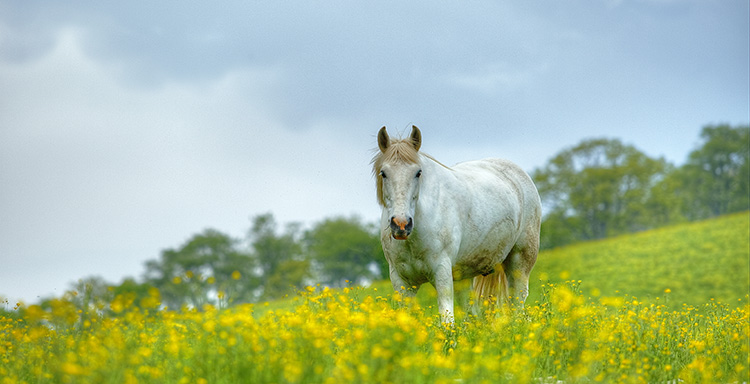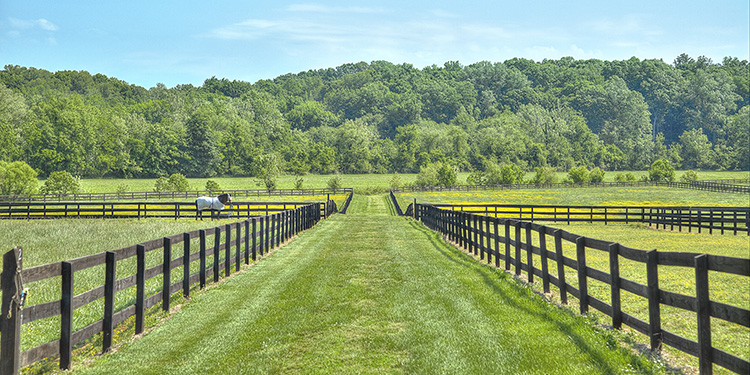Last Updated on May 24, 2023
We’re just a week away from one of America’s most toplofty pastimes—the Kentucky Derby. In leading up to this year’s hat-tastic event, we wanted to address a particular question. This is something we are asked regularly by locals purchasing a hard-earned farmstead and transplants looking to live the bucolic Western North Carolina dream:
How much land do you need for horses?

Horses can be fickle creatures. The amount of land you need can vary significantly by the size of the horse, your management style, and how they’re fed. (You may not need as much grazing land if they’ll be eating hay every day.)
In general, professionals recommend two acres for the first horse and an additional acre for each additional horse (e.g., five acres for four horses). And, of course, more land is always better depending on the foraging quality of your particular property (70% vegetative cover is recommended). With excellent management, one horse can live on as little as one mud-free acre. However, keep in mind that a single horse will chew through 27 acres of pasture per year or that equivalent in hay.
In terms of dry lots, exercise lots, stress lots, or sacrifice lots, the minimum recommended space is 400 square feet per horse, though a larger space is always preferable. According to Mike Yoder, Extension Assistant Professor & Specialist Extension Horse Husbandry at North Carolina State University, “for physical well-being, horses do not require room to run, only move around freely for at least a portion of every day.”
How much land do you need for other animals?
Prime grazing land can sometimes be difficult to come by because of WNC’s rolling and sometimes steep and mountainous terrain. If you still want to keep a few hoofed friends around, consider miniature donkeys or goats. Both are very adaptable to the environment in general, and especially adaptable to the Blue Ridge terrain. A pair of miniature donkeys would thrive on as little as a half acre of pasture, which would be sufficient for both grazing and exercise. As for goats, poor or sloped ground may support 2–4 goats per acre, while better pasture can support 6–8 goats per acre.
Begin searching for WNC equestrian properties today!

Ready to look for your perfect horse-friendly home in WNC? Search now for equestrian listings.
All real estate is local. In order to make confident real estate decisions, we believe it is important for you to have timely and neighborhood-specific information. If you would like more information about buying equestrian properties in WNC, our experts at Allen Tate/Beverly-Hanks are here to help. Contact us today to speak with a Allen Tate/Beverly-Hanks real estate agent about buying homes and land in Western North Carolina.



